In total, the facility consists of approximately 4400 ft2 of both indoor and outdoor research and production space. An additional 800 ft2 pump house was erected on site capable of delivering up to 400 GPM of flow from the adjacent mill pond filtered down to 25 microns and also similarly filtering and UV sterilizing the outflow from the facility. Besides the primary wet lab, an additional classroom, office, and laboratory for in vitro mussel propagation allows for a variety of research and educational opportunities. Our location at a county park will provide opportunities for outreach to both the K-12 population as well as residents of the area here for recreation.
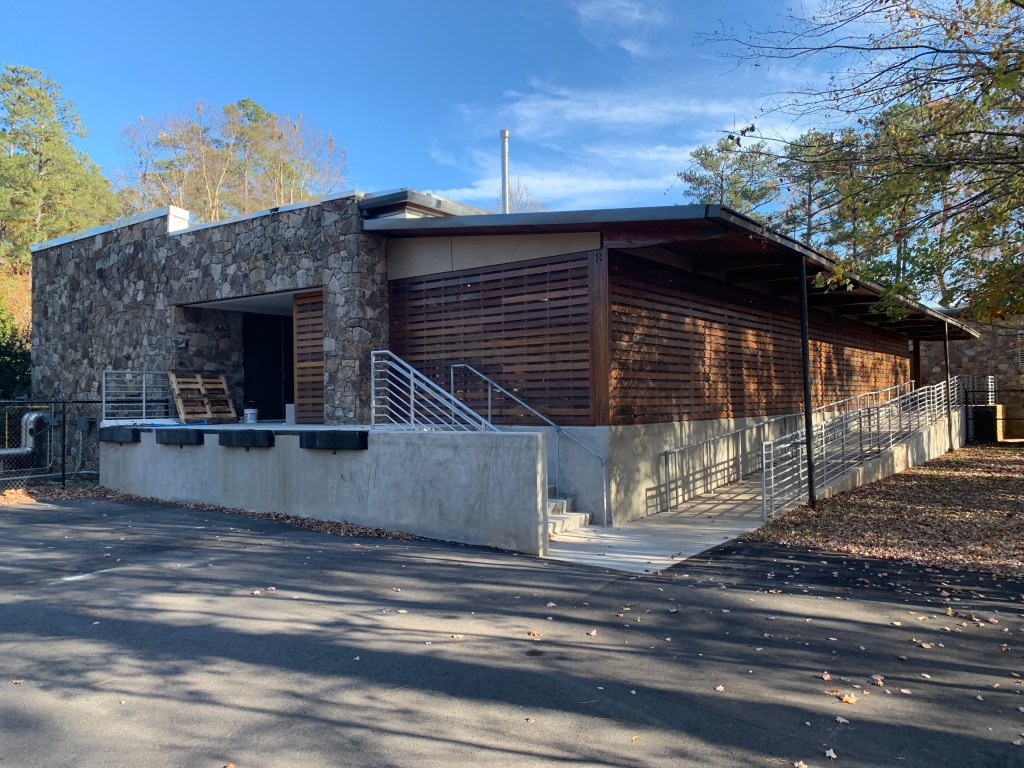
Yates Mill Aquatic Conservation Center
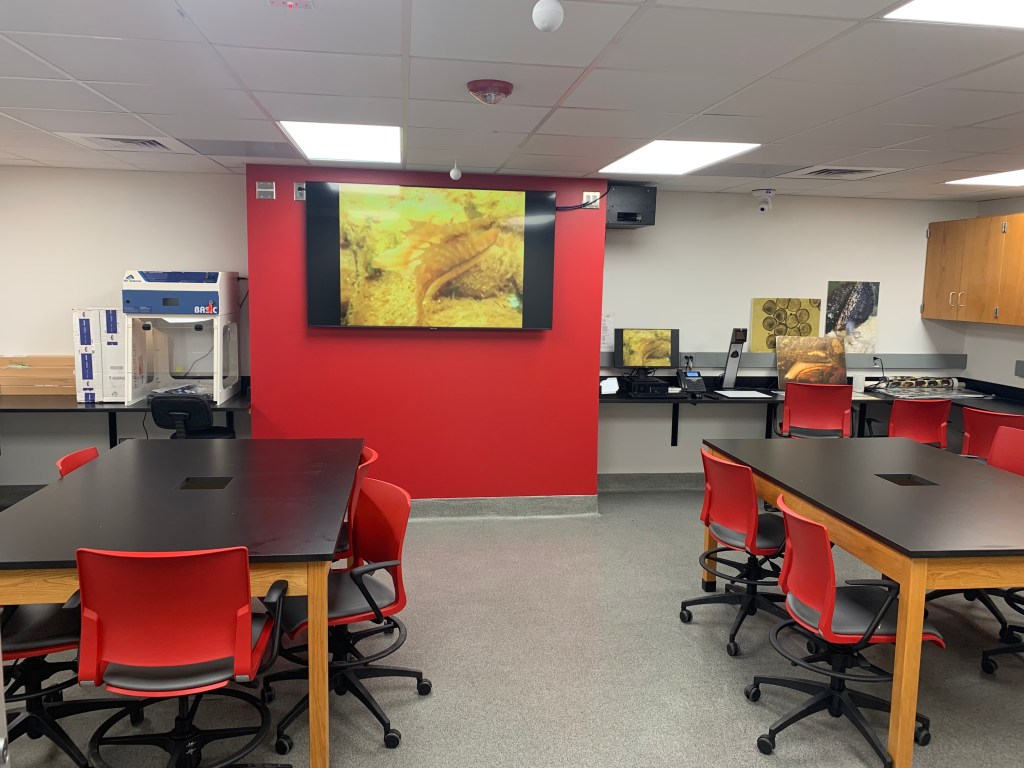
YMACC Classroom
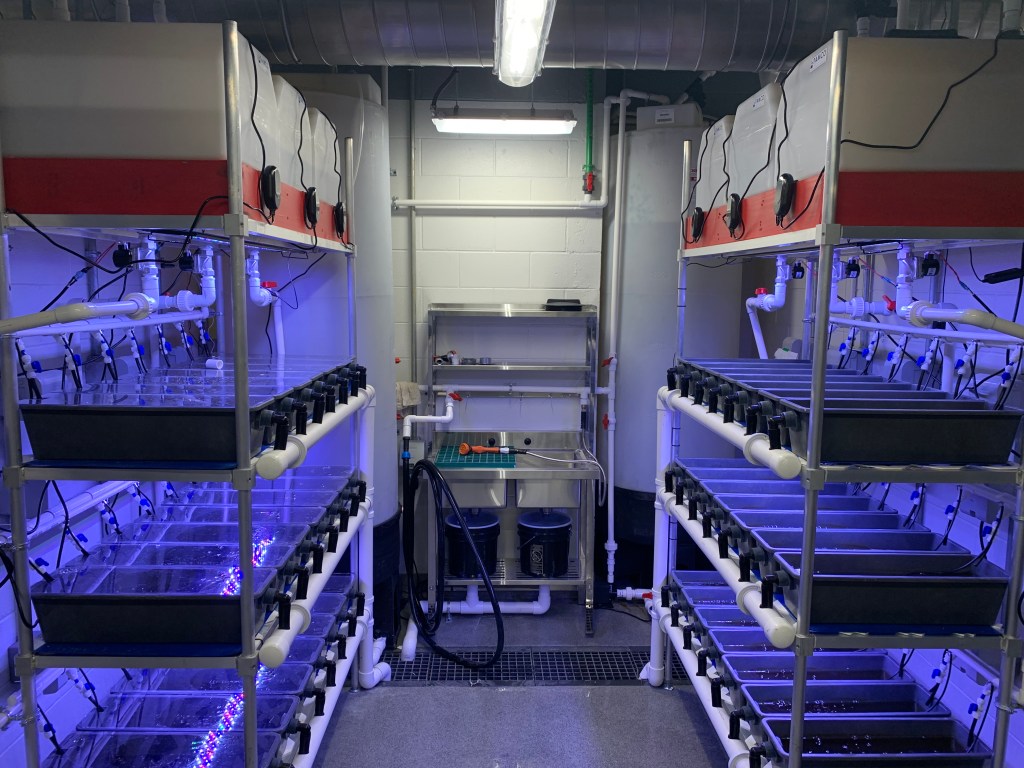
Pulse-flow systems for holding newly metamorphosed juvenile mussels (Stage I)

Vertically stacked tanks for Stage II of mussel growout. This system can be flow through, recirculating or any combination of the two.

Fish holding area

Custom built recirculating aquaculture system for holding fish inoculated with mussel larvae

Fish quarantine area

Recirculating systems for the endangered Magnificent Ramshorn snail
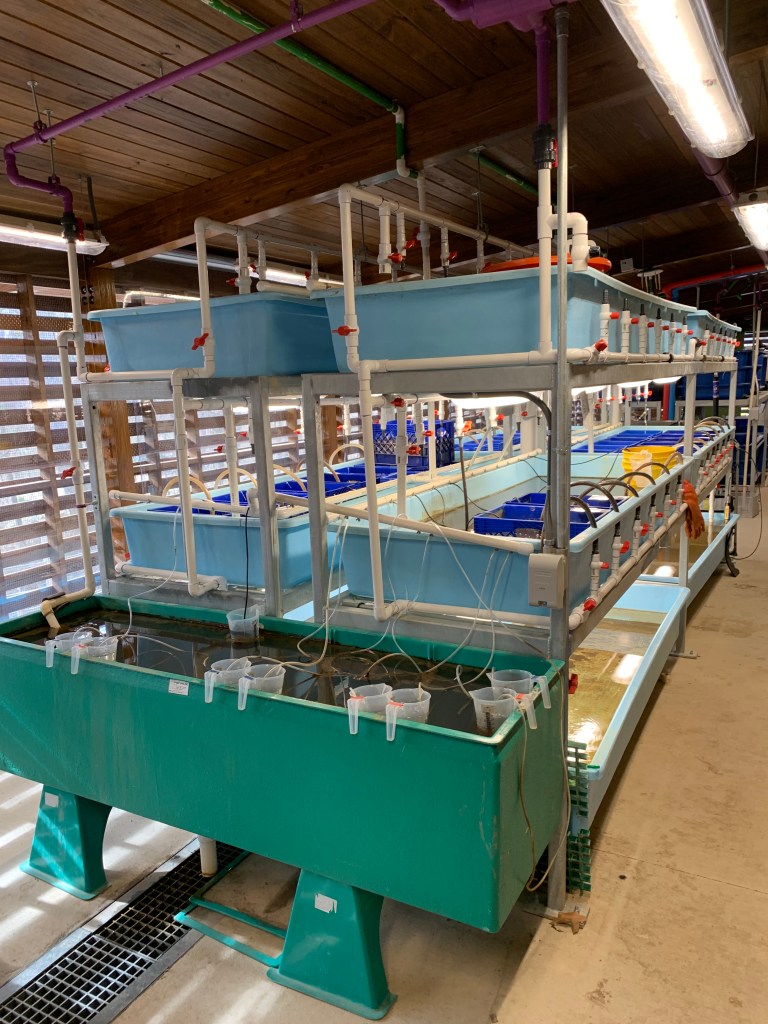
Twelve flow through troughs (8’x3′) are used for mussel grow-out and long-term holding of adults.

Eight 180-gallon tanks with flow through pond water can be used for temporary fish holding and will be plumbed to also function as filtered, recirculating systems.
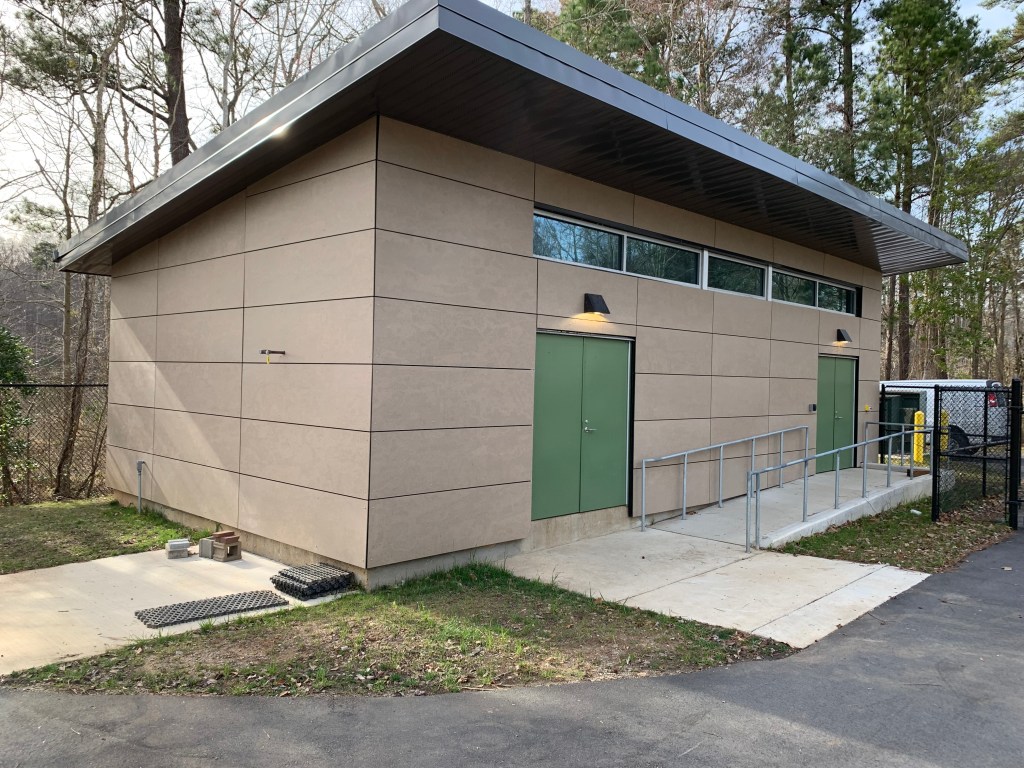
The pump house holds pumps and filters capable of delivering up to 400 gallons per minute of pond water, filtered to 25 microns. Out-going water is also filtered and UV-sterilized here.

Inside the pump house, these self-cleaning, stainless steel filters help keep foreign organisms out of our most sensitive juvenile mussel cultures. The outgoing filters and UV sterilization are for biosecurity and allow for holding of species from outside the Swift Cr. watershed.

Our water source is the 20-acre Historic Yates Mill Pond, near Raleigh, NC.